Discover All Things Policy
All Things Policy

All Things Policy
Author: Takshashila Institution
Subscribed: 1,083Played: 91,296Subscribe
Share
© Takshashila Institution
Description
Ever wondered how automation will change the world? Maybe you puzzle over what India could do to ease traffic congestion, or how China's aircraft carriers will transform Indian Ocean geopolitics? All Things Policy, a daily podcast brought to you by the Takshashila Institution, brings you all the answers. Every weekday, our researchers break down complex economic and geopolitical ideas through the lens of current events. For everyone from the busy executive to the curious student, All Things Policy is all you'll need to understand the world (and appreciate your breakfast) better.
1732 Episodes
Reverse
Malathi Renati and Sowmya Prabhakar share their firsthand experience in senior care. Their conversation focuses on the policy response to securing the future of India’s growing senior population, the emerging 'silver economy,' and the crucial role of society and culture in supporting our senior citizens. To age actively and gracefully.All Things Policy is a daily podcast on public policy brought to you by the Takshashila Institution, Bengaluru.Find out more on our research and other work here: https://takshashila.org.in/research-areasCheck out our public policy courses here: https://school.takshashila.org.in
Languages are more than words; they’re emotion, identity, and access. This week on All Things Policy, Sowmya Prabhakar speaks with Omshivaprakash about what it will take to make AI inclusive, one that truly understands India’s people, not just its English speakers.All Things Policy is a daily podcast on public policy brought to you by the Takshashila Institution, Bengaluru.Find out more on our research and other work here: https://takshashila.org.in/research-areasCheck out our public policy courses here: https://school.takshashila.org.in
Why do governments, even with the best minds and the noblest intentions, so often get it wrong? Taking the route to Whitehall, Vanshika Saraf and Maria Ann Philip discuss the book The Blunders of Our Governments by Anthony King and Ivor Crewe, an enriching study of Britain’s political missteps. Reflecting on detailed examples by the authors, they probe why civic and institutional cultures lead to policy blunders, even in advanced democracies. All Things Policy is a daily podcast on public policy brought to you by the Takshashila Institution, Bengaluru.Find out more on our research and other work here: https://takshashila.org.in/research-areasCheck out our public policy courses here: https://school.takshashila.org.in
In this episode, Leah and Astha discuss the state of teacher training in government schools: what’s working, what isn’t, and how policy can do better. From the promise of DIETs to new models like mentorship programs and digital learning platforms, the discussion unpacks how thoughtful reform could transform the classroom experience for millions of children.All Things Policy is a daily podcast on public policy brought to you by the Takshashila Institution, Bengaluru.Find out more on our research and other work here: https://takshashila.org.in/research-areasCheck out our public policy courses here: https://school.takshashila.org.in
A few months ago, the world witnessed a historic breakthrough in Earth observation technology with the successful launch of the NISAR satellite, a landmark joint mission by NASA and ISRO. More than just another step forward in space exploration, NISAR marks the beginning of a new era of global cooperation and a deeper understanding of our planet. Since entering orbit, the satellite has started transmitting remarkable radar images of Earth, capturing fine details of geological activity, vegetation shifts, and even the effects of human actions on the environment. Swathi Kalyani and Wini Fred Gurung explore these developments on this episode of All Things Policy.All Things Policy is a daily podcast on public policy brought to you by the Takshashila Institution, Bengaluru.Find out more on our research and other work here: https://takshashila.org.in/research-areasCheck out our public policy courses here: https://school.takshashila.org.in
Biotechnologies are transforming how we grow, produce, and consume food. What does this mean for the future of nutrition and health? What challenges do producers and consumers face as food becomes smarter and more functional? And how should governments respond to these rapid changes? In this episode, Shambhavi Naik joins Suman Joshi to explore these questions and more.All Things Policy is a daily podcast on public policy brought to you by the Takshashila Institution, Bengaluru.Find out more on our research and other work here: https://takshashila.org.in/research-areasCheck out our public policy courses here: https://school.takshashila.org.in
The Brahamaputra is one of the world’s longest and widest rivers, running through Tibet, Bangladesh and India, with a total area of 5,80,000 Sq.km and a total length of 2,900 km. What are the unique challenges that emerge due to the river’s transnational existence? What are some of the pressing environmental and developmental concerns related to the river and what could nimble policymaking look like for such a dynamic landscape? To answer all this and more, renowned author, journalist, and human rights advocate Sanjoy Hazarka, joins Kripa Koshy, Staff Programme Manager, to discuss pressing contemporary issues related to the vast Brahmaputra river, exploring themes covered in his recently released book, River Traveller: Journeys on the Brahmaputra from Tibet to the Bay of Bengal.All Things Policy is a daily podcast on public policy brought to you by the Takshashila Institution, Bengaluru.Find out more on our research and other work here: https://takshashila.org.in/research-areasCheck out our public policy courses here: https://school.takshashila.org.in
In this episode of All Things Policy, Abhishek Kadiyala is in conversation with Brigadier Anil Raman (Retd.) to discuss emerging signs of democratic backsliding in the United States. The Second Trump administration’s approach to the top military brass, their legally contested deployments of National Guard and ICE become an important symptom of this backsliding. President Trump’s close ally and Secretary of War, Pete Hegseth’s recent address to military leaders at Quantico, followed by the dismissal and resignation of several senior officials, has underscored tensions between the White House and the military establishment. Simultaneously, the deployment of National Guard troops to curb crime in key Democrat-run cities has been criticised as a politically motivated use of presidential authority. The administration has also expanded the mandate of the Immigration and Customs Enforcement (ICE) agency—through increased funding, manpower, and widened operational targets—to advance its hardline immigration agenda. Together, these developments point to a broader erosion of institutional autonomy and deepening concerns over democratic backsliding in the United States.All Things Policy is a daily podcast on public policy brought to you by the Takshashila Institution, Bengaluru.Find out more on our research and other work here: https://takshashila.org.in/research-areasCheck out our public policy courses here: https://school.takshashila.org.in
Join Srinivasan Iyengar and Arindam Goswami in this episode of All Things Policy, where the discussion focuses on India’s electricity sector. Around the world, electricity demand is rising sharply due to post-COVID economic recovery, greater electrification of transport (EVs), the growing share of renewables, and the expansion of data centres. As a rapidly industrialising developing nation, how is India positioned to meet this surge in demand? What adjustments are needed to ensure that the power sector "powers" India’s progress?And for this, we need to decode the complex world of India's energy transition. In this episode, we’ll be diving into a controversy that's costing renewable energy developers millions - and potentially slowing down India's ambitious clean energy targets. DSM penalties, or Deviation Settlement Mechanism charges, were designed to maintain grid stability. But they've become a lightning rod of debate in the renewables sector. Are these penalties fair accountability measures, or are they unfairly punishing wind and solar developers for doing something fundamentally different from coal plants? With billions of rupees at stake and India's renewable energy target hanging in the balance, this isn't just a technical debate - it's about the future of India's energy landscape. Today we're asking: Is the grid penalising the very energy sources it needs most?Our guest for today, Srinivasan Iyengar, is the CTO for the Energy and Resources Industry in Asia at a major multinational technology company. He completed his PhD in Computer Science from University of Massachusetts, Amherst. His research focused on Distributed Systems, Cyber-physical Systems, Cloud and Edge Computing, and Smart Cities and Energy.All Things Policy is a daily podcast on public policy brought to you by the Takshashila Institution, Bengaluru.Find out more on our research and other work here: https://takshashila.org.in/research-areasCheck out our public policy courses here: https://school.takshashila.org.in
October 2025 saw among the deadliest clashes across the Pakistan-Afghanistan border since the Taliban took power in Kabul in 2021. In this episode of All Things Policy, Aishwaria Sonavane and Shobhankita Reddy declutter what triggered these clashes and what all this means for India. All Things Policy is a daily podcast on public policy brought to you by the Takshashila Institution, Bengaluru.Find out more on our research and other work here: https://takshashila.org.in/research-areasCheck out our public policy courses here: https://school.takshashila.org.in
In this episode of All Things Policy, Swathi Kalyani and Shobhankita Reddy, Research analysts at the Takshashila Institution, discuss about the 2025 Nobel Prize awarded in the field of Economics. They delve into the winners' (Joel Mokyr, Phillipe Aghion, Peter Howitt) work, their research, the relevance of their studies in today's economic sphere, criticisms surrounding these studies, and possible takeaways for India's economic development.All Things Policy is a daily podcast on public policy brought to you by the Takshashila Institution, Bengaluru.Find out more on our research and other work here: https://takshashila.org.in/research-areasCheck out our public policy courses here: https://school.takshashila.org.in
Join Mihir Mahajan, Arindam Goswami, and Shreya Ramkrishnan in this episode of All Things Policy, as they unpack India’s evolving patent ecosystem, from the rise in patent filings by Indian universities to the question of patent quality. They explore how research translates into patents, the pace of innovation, and what these trends mean for India’s broader research and development landscape.Read Mihir and Arindam’s Op-ed: “A surge in patent applications doesn’t mean India has suddenly turned innovative” - tinyurl.com/4y5bru4aAll Things Policy is a daily podcast on public policy brought to you by the Takshashila Institution, Bengaluru.Find out more on our research and other work here: https://takshashila.org.in/research-areasCheck out our public policy courses here: https://school.takshashila.org.in
As China tightens its grip on battery technology through new export controls and files a WTO complaint against India’s subsidies for EV and battery manufacturing, competition for green tech in the global market is intensifying. In this episode, Bhumika Sevkani and Anushka Saxena from the Takshashila Institution, unpack the mixed signals by China on cooperation with India, what these moves mean for India’s clean tech ambitions, and the future of battery supply chains.All Things Policy is a daily podcast on public policy brought to you by the Takshashila Institution, Bengaluru.Find out more on our research and other work here: https://takshashila.org.in/research-areasCheck out our public policy courses here: https://school.takshashila.org.in
Every day it is a new astounding figure. Investments in AI by major companies in the US, China and Europe are running into billions. And they are only increasing. According to an estimate by Gartner, global AI spending will total about 1.5 trillion dollars in 2025. Are we heading into yet another tech bubble that will soon burst? Is it like the dotcom bubble? Can AI companies realistically recover their investments?In this episode of All Things Policy, Lokendra Sharma sits down with Bharath Reddy and Rijesh Panicker, the resident AI experts at Takshashila, to discuss multiple themes surrounding the ongoing AI investment hype cycle.All Things Policy is a daily podcast on public policy brought to you by the Takshashila Institution, Bengaluru.Find out more on our research and other work here: https://takshashila.org.in/research-areasCheck out our public policy courses here: https://school.takshashila.org.in
Traditionally, central banks hold different assets such as US Treasuries, gold, and foreign currencies. For many years, US Treasuries have enjoyed a strong position as a major part of these reserves. This trend is now shifting in a big way, and gold has started to play a much bigger role wherein it recently surpassed the Euro to become the second-largest global reserve asset after the U.S. dollar and, for the first time since 1996, gold now represents a bigger share of central banks' reserves than Treasuries. In this episode of All Things Policy, Anwesha Sen and Anisree Suresh discuss the possible impact that Trump’s policies might be having on this trend.All Things Policy is a daily podcast on public policy brought to you by the Takshashila Institution, Bengaluru.Find out more on our research and other work here: https://takshashila.org.in/research-areasCheck out our public policy courses here: https://school.takshashila.org.in
In this episode of 'All Things Policy', Shobhankita Reddy speaks to Anushka Saxena on China's latest export restrictions on rare earth elements and magnets, and what it says about China's perception of leverage in its technological competition with the US. They also dive deep into the context of China's rare earth supply chain dominance, and whether in the long term, the restrictions harm or aid its interests. Shobhankita also sheds light on India's options in the face of these restrictions.All Things Policy is a daily podcast on public policy brought to you by the Takshashila Institution, Bengaluru.Find out more on our research and other work here: https://takshashila.org.in/research-areasCheck out our public policy courses here: https://school.takshashila.org.in
In this episode of All Things Policy podcast, Swathi Kalyani is in conversation with Abhishek Kadiyala to discuss the ongoing U.S. government shutdown. A U.S. government shutdown occurs when the Congress fails to pass appropriation bills that allocate funding to various government agencies before October 1 each year.This year, the shutdown has resulted from disagreements over the Affordable Care Act (ACA) premium subsidies and Medicare funding cuts introduced by the Trump administration. An overarching issue is also the Trump administration’s impoundment of appropriated funds with the Department of Government Efficiency (DOGE) and USAID cuts. Republicans are calling for a “clean” Continuing Resolution that excludes healthcare provisions for future negotiations, while Democrats reject any resolution that omits healthcare funding, as the shutdown is set to enter its third week.All Things Policy is a daily podcast on public policy brought to you by the Takshashila Institution, Bengaluru.Find out more on our research and other work here: https://takshashila.org.in/research-areasCheck out our public policy courses here: https://school.takshashila.org.in
India's gross expenditure on research and development (GERD) is approximately 0.6%- 0.7% of its GDP and has remained relatively stagnant over the last 20 years. Its relatively low R&D spending contributes to India's lag in innovation and adoption of advanced technologies, which in turn slows technological adoption and weakens its global competitiveness. What could be some possible policy solutions for this challenge? Meher and Rohan, students from Takshashila's Post Graduate Programme in Public Policy, weigh in and propose the development of what they and their cohortmates call Bharat AVISHKAAR Yojana (Advancing Vigyan, Innovation, Skill-development, Human Capital, Knowledge-economy, and Advanced Research). All Things Policy is a daily podcast on public policy brought to you by the Takshashila Institution, Bengaluru.Find out more on our research and other work here: https://takshashila.org.in/research-areasCheck out our public policy courses here: https://school.takshashila.org.in
Nepal is navigating a critical phase of political transition, economic reform, and evolving regional dynamics. In this episode of All Things Policy, Wini Fred Gurung speaks with Professor S. D. Muni, Professor Emeritus at Jawaharlal Nehru University and India’s former Special Envoy to Southeast Asian countries, to discuss these developments and what the future holds for Nepal.All Things Policy is a daily podcast on public policy brought to you by the Takshashila Institution, Bengaluru.Find out more on our research and other work here: https://takshashila.org.in/research-areasCheck out our public policy courses here: https://school.takshashila.org.in
While there is extensive literature studying Pakistan's policies and motivations over the decades, there is a limited understanding of the architecture of India's Grand Strategy towards Pakistan. Individual events, military actions, and diplomatic decisions are studied and deliberated, but India's actions are rarely understood within an analytical framework of a grand strategy. In this episode of All Things Policy, Shobhankita Reddy hosts Aishwaria Sonavane, who will present this framework and make the point that, despite tactical differences, successive Indian governments have pursued a consistent, coherent strategy at the centre of which is a core objective to limit Pakistan's ability to disrupt India's growth trajectory.All Things Policy is a daily podcast on public policy brought to you by the Takshashila Institution, Bengaluru.Find out more on our research and other work here: https://takshashila.org.in/research-areasCheck out our public policy courses here: https://school.takshashila.org.in




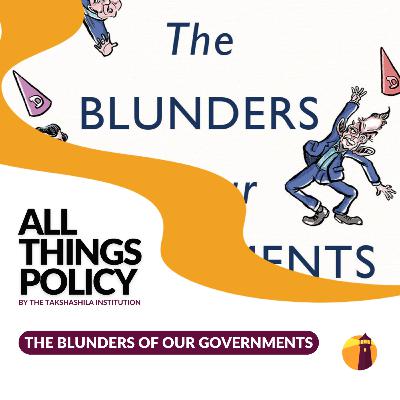
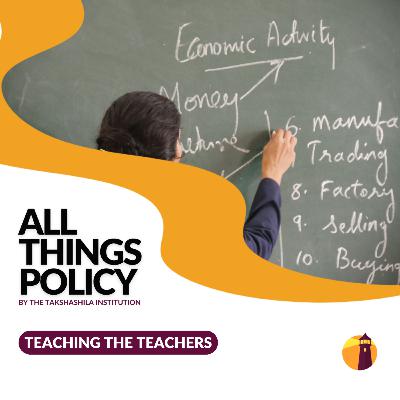
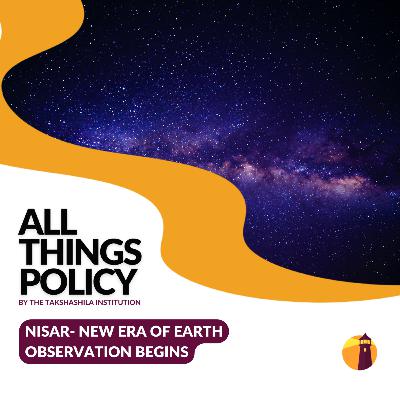

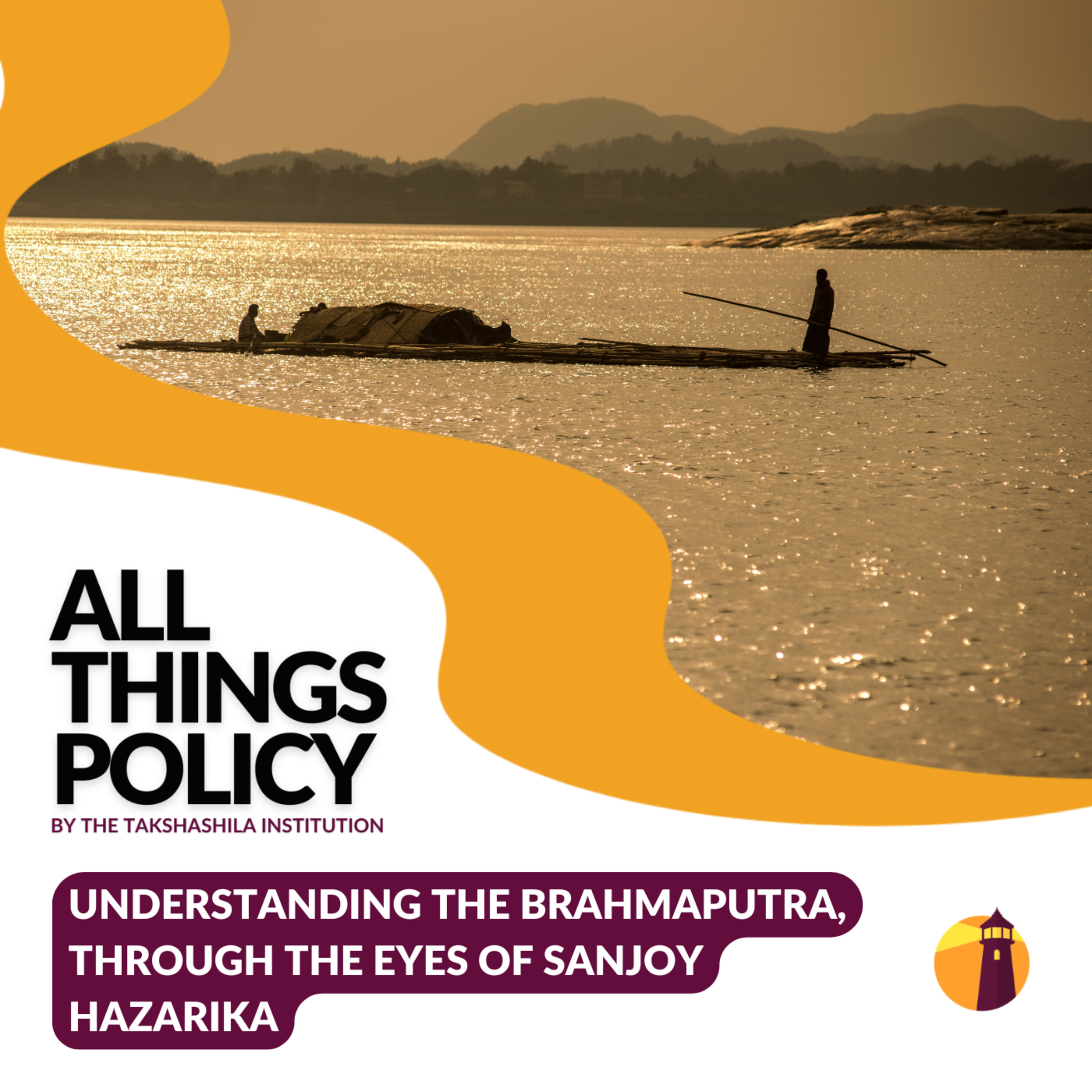
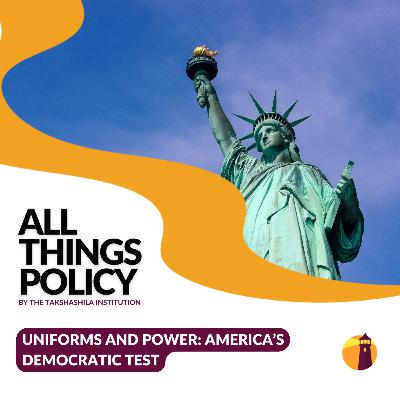

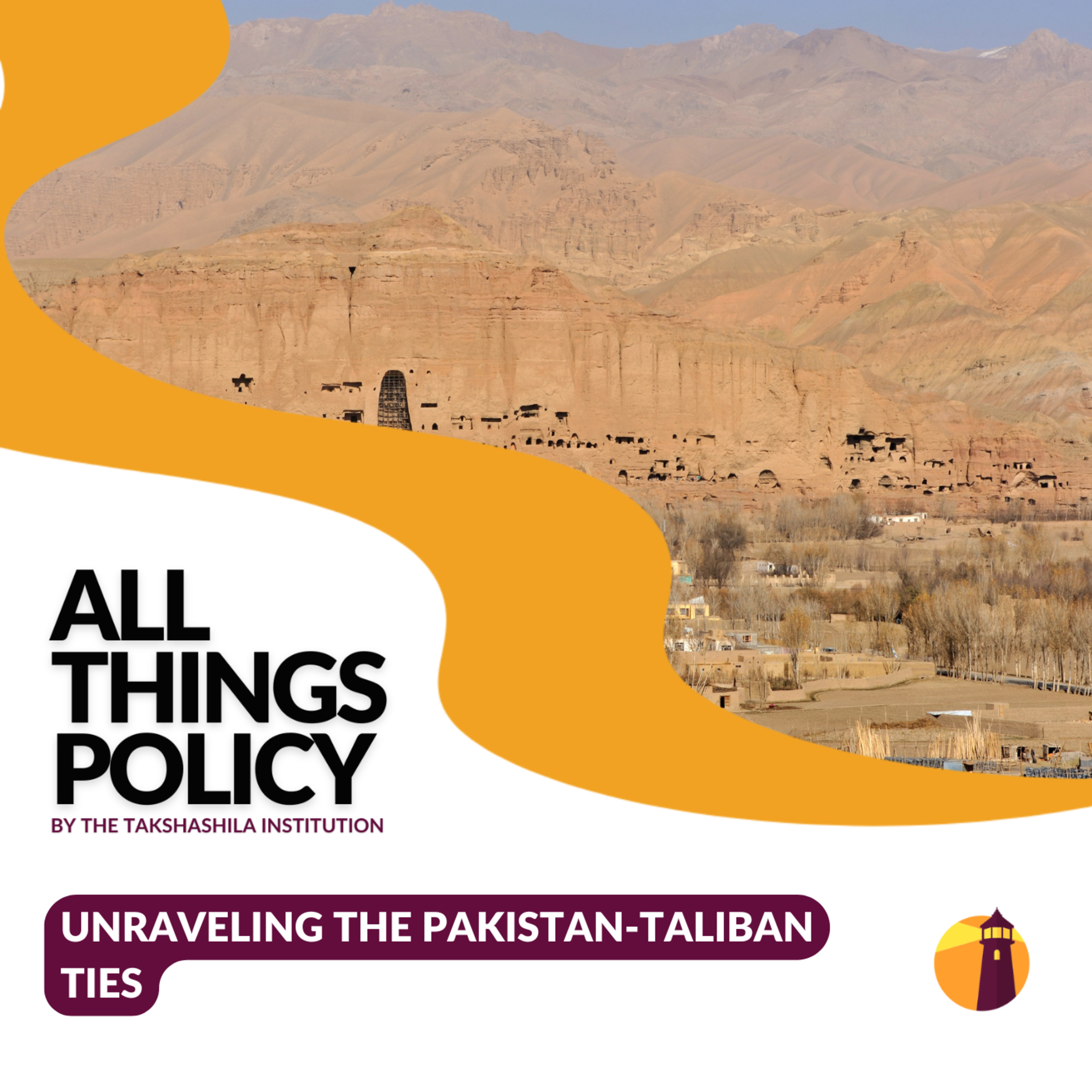
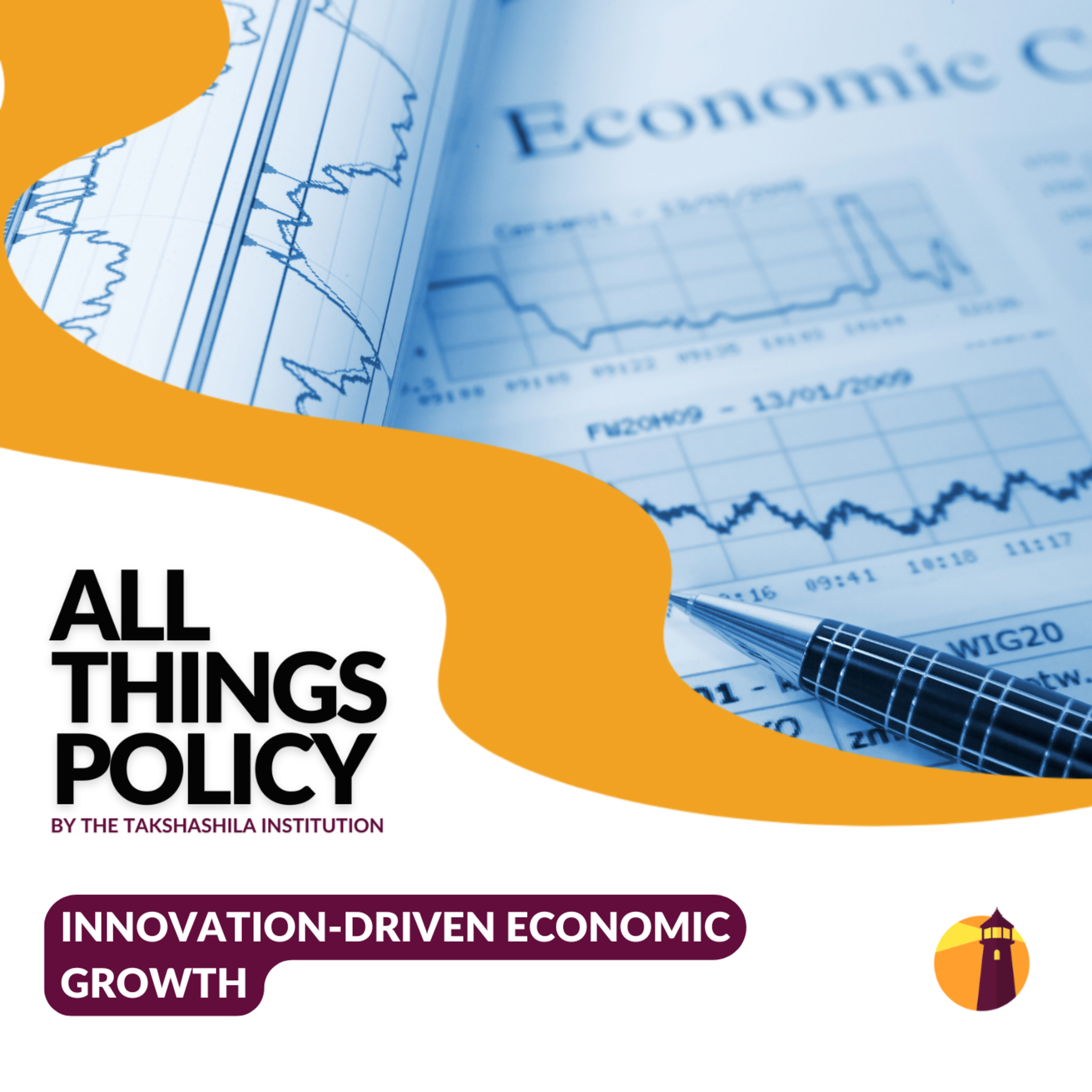




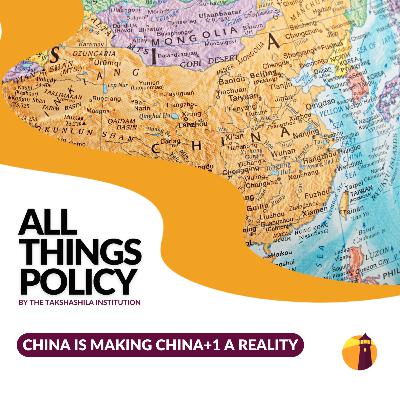

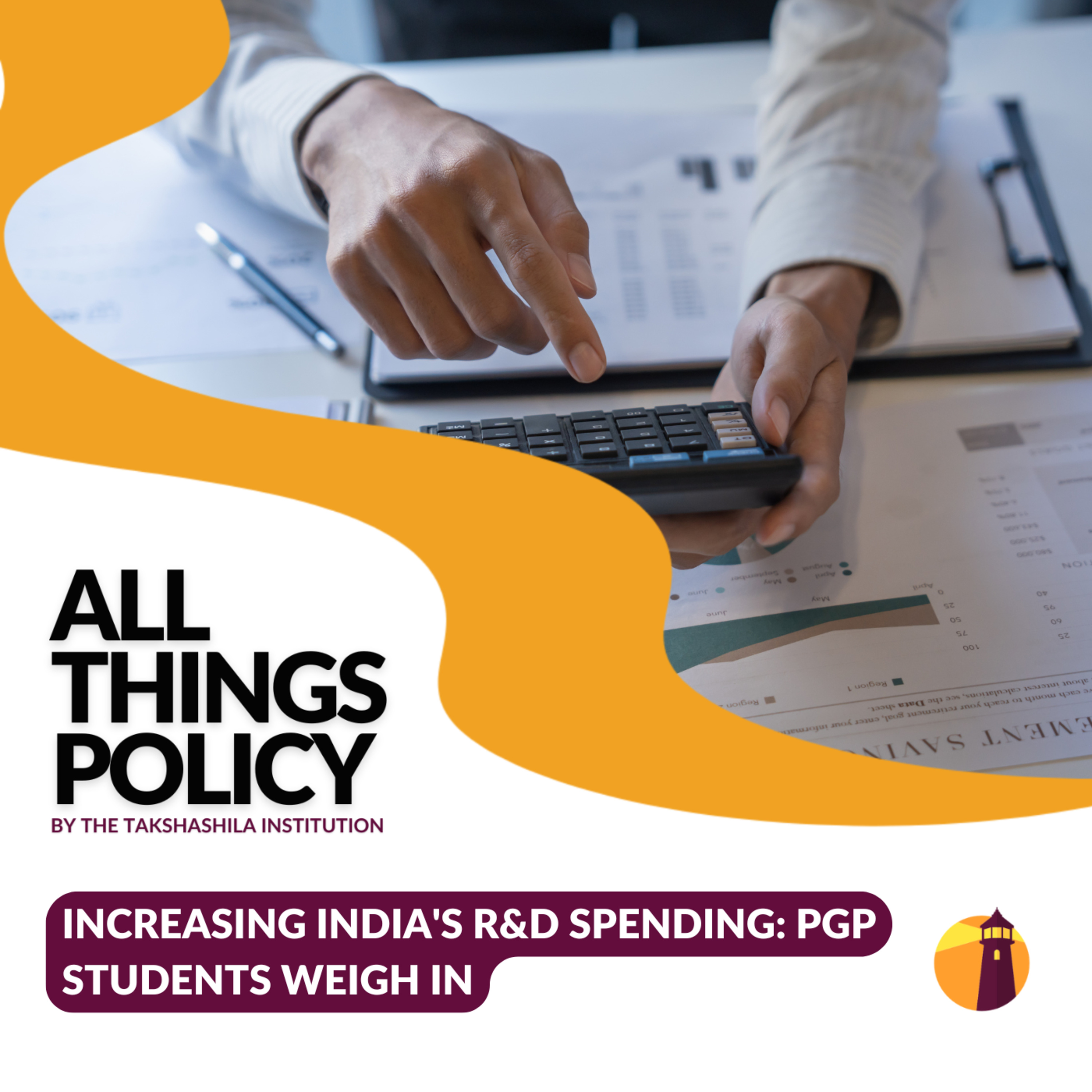

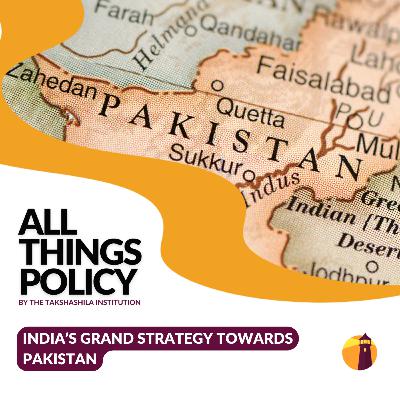



great podcasts, gives us the firsthand and expert information from the respective fields affecting the Indian Affairs. highly recommended.
A good blend of economics and philosophy.
Very Well Analysed.
hey I learnt a lot from the sinauli episode. Can u kindly do one episode on keezhadi excavation also?
ms.ahluwalia needs a better mic.
Good discussion Aniruddh and Rajat. I have read the book and wasn't sure if I should still spend the time listening to the podcast but I am glad I did. I liked the parts on historical aspects of Indian trucking, the difference that you saw between trucking in the north and the south, the structure of the industry and of course the characters and their stories. Rajat - Congratulations again on the book and looking forward to the next edition. There's a point in the discussion where you talk about book recommendations on the Battle of Kohima. I'd highly recommend reading "Road of Bones" by Fergal Keane (Aniruddh - you might disagree less with Subhash Chandra Bose after reading about the conduct of the Japanese soldiers and officers, at least before they started to run out of food)
Felt as if podcast was sponsored by Uber and Ola
It's not about the privacy issue it's about fair trade which China doesn't allow other countries app. So cut this crap of not being like another China. We shd fight it on all fronts
We all understand that these are unusual times with unusual challenges. But there is no point in coming up with a podcast episode if listeners can't listen.
RBI hinting depositors would ha have caused a run on the bank earlier.
Why two laymen are talking? I thought the idea is to have an expert. And what is Capital Adequacy again?
hello guys, can you please induct Q&A from your listen and allot 5 mins of each podcast in answering those queries. thank you Anand Sharma
Eye opening..good job
It's Kyasanoor not Kainasoor. It's a place near Jog Falls, Malnad region.
very comprehensive conversation :)
Interesting, Impressive and Inspiring 👍👍👍
great podcast! I didn't know about the green revolution causing air pollution
I am glad you mentioned the temporality of the process in the discussion. good discussion. thank you
certainly one of the best podcasts I have listed to
Very nerdy, very informative and very cool. One of the best professional podcasts from the Indian policy world - I'd highly recommend!